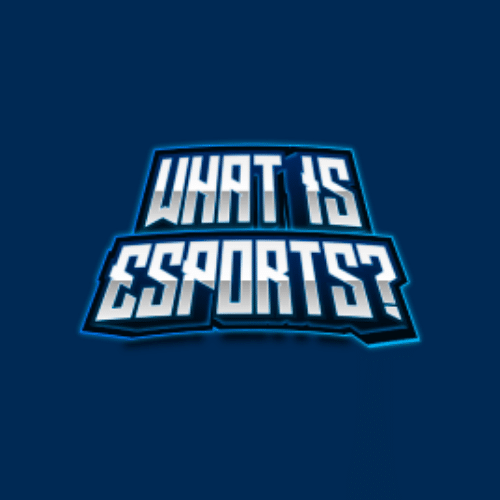The Sociology of Esports: Communities and Identity in Competitive Gaming

Updated On: November 29, 2025 by 
Have you ever found yourself pondering the influence of gaming communities on our personal identities? You’re certainly not alone – indeed, we’ve fully immersed ourselves in the electric buzz of esports and witnessed its profound impact.
In this post, we’re going to tease out the intricate social fabric that interlinks competitive gamers, delving into how their online skirmishes shape their sense of self in the tangible world.
Prepare for a captivating expedition through digital battlegrounds!
The Emergence of Esports as a Subculture
Esports, short for electronic sports, refers to the competitive playing of video games. This subculture has experienced rapid growth in recent years, with a diverse and dedicated community of players and fans who participate in organised tournaments and events.
Definition of esports
Esports brings competitive gaming to a professional level where players clash in organised tournaments. With games ranging from strategy gems to fast-paced shooters, we see individuals and teams go head-to-head for glory and significant cash prizes.
This is not just about having fun; it’s a digital battle ground that tests skill, strategic thought, and teamwork.
We’re witnessing a cultural shift where virtual matches draw massive audiences both online and in packed stadiums. It’s fascinating how these competitions mirror traditional sports with leagues, fan bases, and even coaches shaping the landscape of this subculture.
The growth of the industry has been meteoric as big brands sponsor events and media rights are sold for eye-watering sums.
The demographics of esports players diversify continually as more people find their passion in this arena – it could be your friend next door or someone from across the globe who shares your enthusiasm for gaming excellence.
Whether you’re an elite gamer or just starting out, there’s room for everyone under the broad banner of esports.
Moving into our next topic allows us to explore further into how tight-knit communities form around these intense competitions – revealing another piece of the esports phenomenon.
Growth of the industry
Esports has seen a remarkable surge in popularity, quickly growing from a niche hobby to a thriving industry. The increasing accessibility of online gaming and live streaming platforms has contributed to the rapid expansion of the esports market, attracting both players and spectators from diverse demographics.
With iconic sports names showing interest and investment in esports, it’s clear that the industry is gaining mainstream recognition and substantial financial backing.
Research on the psychology of esports is also on the rise as scholars seek to understand its impact on society, students, and character development. As more attention turns towards organised competitive gaming, its significance within video game communities continues to grow.
Demographics of esports players
Understanding the demographics of esports players offers us fascinating insights into the community that has grown around competitive gaming. We see a subculture that’s rapidly evolving, embracing diverse backgrounds whilst still facing challenges in inclusivity.
| Age | Gender | Region | Education | Occupation |
|---|---|---|---|---|
| Predominantly 18-34 | Mostly male | Global, with high concentrations in Asia, North America, Europe | Varies, many high school and college attendees | Students, professionals, full-time gamers |
| Youthful player base | Increasing female participation | Emerging markets in South America and Africa | Some players prioritise gaming over formal education | Growing number of content creators and streamers |
We’re witnessing esports garner greater mainstream acceptance, drawing in younger generations and becoming a vital part of sports culture. Our community embraces people from varied educational backgrounds, including those who balance gaming with their studies. We celebrate the gradual increase in gender diversity, acknowledging the challenges that still exist for women in esports. It’s enthralling to see how our narrative is shaped by these demographics, influencing the fabric of our shared identity.
The Role of Community in Esports
Online communities play a crucial role in the world of esports, providing a platform for players and fans to connect, share strategies, and build relationships. Fan culture also plays a significant role in shaping the identity of esports teams and events.
Online communities
Livestreaming has significantly contributed to the formation of tight-knit online communities within esports, connecting fans and players from all around the world. These virtual communities provide a space for people to share knowledge, insights, and experiences about their favorite games and professional players.
They also facilitate discussions on strategies, gameplay techniques, and upcoming tournaments, fostering a sense of belonging among like-minded individuals who are passionate about competitive gaming.
Esports is shaping new ways for gamers to connect not only with each other but also with professional players through platforms such as Twitch and Discord. Livestreaming has allowed gamers to participate in live chat sessions during matches, creating an interactive experience that strengthens their bond with the esports community.
Fan culture
Esports fan culture is a vibrant and integral part of the competitive gaming community, with fans demonstrating unparalleled dedication to their favourite teams and players. Esports fandoms express knowledge of the game and form strong identifications with professional players, often contributing to an infectious sense of camaraderie within the community.
Notably, livestreaming has played a pivotal role in nurturing these online communities around video games, including esports. The diverse nature of esports fandoms reflects both differences and similarities in how individuals engage with and support their chosen games, teams, or personalities.
The evolving landscape of esports fandom presents an exciting opportunity for both passionate gamers and novices to become fully immersed in the world of professional gaming. With its growing popularity among younger generations and increasing interest from influential figures in traditional sports culture, esports fan culture continues to shape the broader narrative surrounding competitive gaming.
Development of team identities
Esports team identities have evolved significantly over the years, with professional gaming teams building strong and recognisable brands. The rise of esports has seen the development of fan bases around specific teams, bolstered by live events, online communities, and social media engagement.
This has led to a sense of belonging and identification among fans, contributing to the overall growth and recognition of esports as a legitimate competitive industry.
The narratives surrounding different teams have become integral to the identity of esports as a subculture within gaming culture. These narratives often reflect regional or national pride, community values, historical triumphs and challenges faced by players and organisations.
Narratives and Identity in Esports
Esports narratives play a crucial role in shaping the identity of gamers, with representation in media, stereotypes and biases, and gender inclusivity being important factors to consider.
To dive deeper into the sociology of esports and how it influences communities and identity in competitive gaming, keep reading!
Representation in media
Media representation plays a crucial role in shaping the perception of esports and its participants. The portrayal of gamers in media often perpetuates stereotypes and biases, which can impact the identity formation of esports enthusiasts.
Gender inclusivity in gaming is also a significant issue, as women are frequently underrepresented or subjected to harassment. However, there are efforts to challenge these representations and promote diversity within the industry, reflecting the evolving landscape of competitive gaming.
Furthermore, as esports gains mainstream acceptance, there has been an increase in coverage from traditional media outlets. This exposure not only provides validation for the subculture but also fosters greater understanding among the wider public about the significance of professional video gaming.
Stereotypes and biases
Esports continues to be plagued by stereotypes and biases, with many misconceptions surrounding video game players. Research shows that women in esports often face challenges and are frequently subjected to general and sexual harassment.
Additionally, there is a persistent stereotype that gamers lack physical fitness or social skills, despite evidence showing that gaming can actually enhance problem-solving abilities and teamwork.
These biases affect the inclusivity of esports communities and impact how gamers are perceived by wider society.
Moreover, the representation of different genders in media also contributes to biased perceptions within the industry. The portrayal of male pro-players as dominant figures while female players are often sidelined perpetuates gender disparities in esports fandoms.
Gender inclusivity in esports
Gender inclusivity in esports is a pressing issue as female gamers often face gender-based discrimination and harassment. Despite the growing popularity of esports, women are significantly underrepresented within the professional gaming community.
This imbalance has led to campaigns advocating for more inclusive spaces where female gamers can thrive without fear of prejudice or stereotyping.
Female representation in media coverage and gaming sponsorships remains unequal, impacting not only the industry but also aspiring female players. Organisations like Women in Games work towards addressing these disparities, promoting diversity, and fostering an inclusive environment for all gamers.
Psychological Aspects of Esports
The psychological aspects of esports delve into the effects of competitive gaming on player identity, social interactions, and the role of competition in shaping gamer identity. Understanding these dynamics can provide insight into the complexities of the gaming community and individual experiences within it.
Effects of esports on player identity
Esports can significantly impact a player’s sense of self. The competitive nature of esports often contributes to players developing a strong and distinct gaming identity, shaping how they perceive themselves within the gaming community and beyond.
As gamers engage in tournaments and immerse themselves in fan culture, their involvement can lead to a shift in their personal narratives, contributing to a more robust sense of identity within the gaming subculture.
Furthermore, esports participation can have psychological effects on players’ perception of themselves. As individuals navigate the challenges, successes, and failures inherent in competitive gaming, they may experience personal growth and an increased understanding of their own capabilities.
Role of competition in gamer identity
Competition plays a significant role in shaping a gamer’s identity. Engaging in competitive gaming allows players to test their skills, showcase their abilities, and strive for improvement.
Through competing in tournaments and matches, gamers develop a sense of achievement and recognition within the gaming community. This fosters a stronger connection to the esports subculture and helps shape their individual identities as dedicated players.
The intensity of competition also leads to the formation of rivalries and alliances, further influencing how gamers perceive themselves within the gaming world.
Furthermore, competition serves as a platform for building resilience and determination among gamers. Overcoming challenges during competitive play contributes to the development of mental fortitude and sportsmanship, which are integral components of gamer identity.
As competitions continue to gain popularity and recognition, they provide opportunities for players to define themselves within the esports landscape while contributing to the overall growth of this dynamic industry.
Impact on social interactions
Esports has had a significant impact on social interactions, as it has created opportunities for gamers to connect with others who share their passion. Online communities and gaming tournaments have become spaces for players to engage in meaningful interactions and build friendships around their common interest in competitive gaming.
Research into the psychology of esports also suggests that participation in gaming competitions can foster teamwork, communication skills, and sportsmanship among players, contributing positively to their social development within the gaming community.
The emergence of esports has also provided a platform for individuals to form new identities and express themselves within the gaming culture. The inclusive nature of esports fandoms allows for diverse narratives and encourages players to explore various aspects of their identity within the context of video game culture.
Societal Perceptions of Esports
Society’s perception of esports is often met with skepticism and challenges to its legitimacy as a form of competitive sport. However, there is an increasing push for mainstream acceptance and recognition, especially in comparison to traditional sports.
Challenges to legitimacy
Societal acceptance of esports as a legitimate sport remains a significant challenge, despite its growing popularity. As passionate gamers and novice players know, mainstream audiences often struggle to understand the skill and dedication required for competitive gaming.
Persistent stereotypes about video game players being lazy or lacking athleticism hinder the recognition of esports as a genuine sport.
The comparisons between traditional sports and esports are frequent among sceptics. Yet, it’s important to note that both offer physical and mental challenges requiring mastery and strategic thinking.
Mainstream acceptance
Esports has been steadily gaining mainstream acceptance, challenging the conventional perceptions of gaming and sports. As iconic sports names become involved in esports, the industry’s legitimacy is growing, attracting attention from a wider audience.
This shift is reflected in the increasing interest among younger generations, making esports an essential part of video game communities.
The industry’s growth also reflects a rising interest in its impact on society and students. Esports’ influence as a significant aspect of character building and sports culture has sparked extensive research into its effects, indicating a shift towards widespread recognition and integration within mainstream consciousness.
As societal perceptions evolve, the comparison with traditional sports offers valuable insights into this cultural phenomenon’s trajectory.
Comparison with traditional sports
Esports and traditional sports both bring communities together through shared passion, teamwork, and competition. However, while traditional sports have a long-established history and physical aspects, esports thrive in the digital realm with global accessibility.
The rise of esports has attracted iconic figures from traditional sports who have invested heavily and integrated their expertise into the gaming industry. In contrast to this partnership, societal perceptions of esports are often met with skepticism regarding its legitimacy as a sport, despite its growing popularity among younger generations.
The psychology of competition is a common thread between traditional sports and esports. Both offer opportunities for character building by fostering resilience, discipline, and strategic thinking.
Conclusion
In conclusion, the sociology of esports illuminates the dynamic and evolving nature of communities and identity within competitive gaming. Players and fans actively shape the subculture, challenging stereotypes and biases while fostering inclusivity.
The psychological impact of esports on individual identity is a subject of growing interest, as it becomes an integral part of character-building in modern sports culture. Furthermore, societal perceptions are shifting as esports gains mainstream acceptance, signaling its enduring relevance in shaping social interactions and cultural dynamics.
FAQs
1. What is the sociology of esports?
The sociology of esports explores how communities form within competitive gaming and how being part of this subculture can transform a player’s identity.
2. How do video game players interact in esports?
Video game players engage with each other through team strategies, fan discussions, and sharing their experiences which strengthen the sense of community in the esports industry.
3. Can involvement in esports change a person’s identity?
Yes, immersion in the competitive gaming environment often leads to an identity transformation as players align themselves with the values and norms of the wider gaming fandom.
4. Why is understanding the psychology behind esports important?
Understanding the psychology gives insight into what drives gamers to compete, connect, and identify with others within this vibrant subculture; it’s key to grasping esport narratives’ emotional impact on both individuals and teams.


